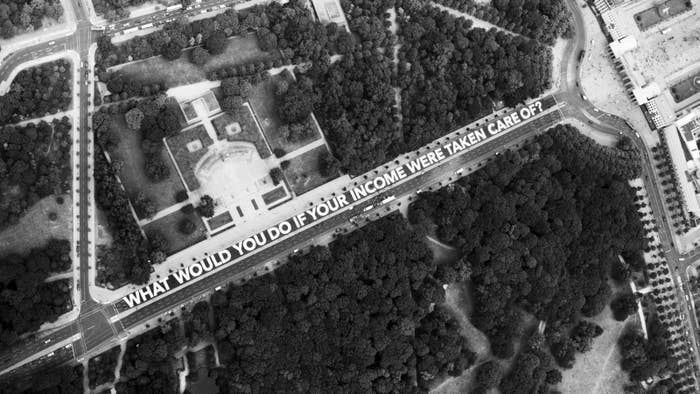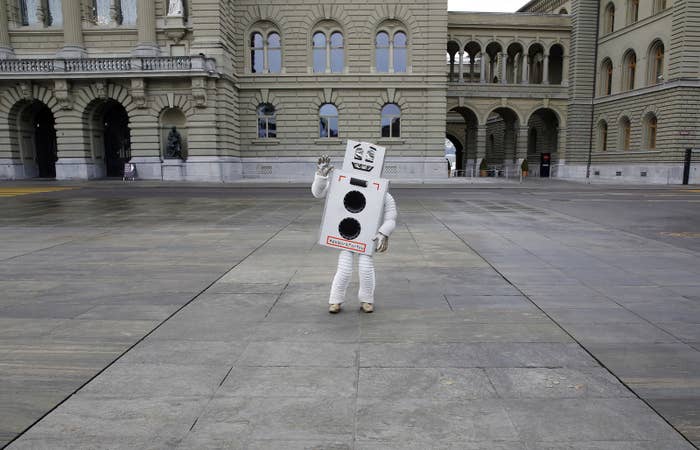
It turns out that giving people free money works out pretty well for them — and has little effect on whether or not they quit their job.
A new study from the left-leaning Roosevelt Institute looked at research on the effects of situations in which people are given free money with no strings attached. The study, authored by Ioana Marinescu, an assistant professor at the University of Chicago, found that people who received these "windfalls of cash" typically do not drop out of the workforce.
In the case of lottery winners, a study drawing on a sample winners in Sweden concluded that while some reduced the number of hours they worked, the majority remained actively employed. It found, on average, that every $100 increase in income from lottery winnings led to an $11 decrease in earnings from working.
"Winning $140,000 decreases the probability of working by about 2 percentage points from a baseline of 77 percent, and the effect is entirely gone after 10 years," it found.
Lottery winners also decrease hours worked by an average of just one hour per week, according to the study.

The lottery research was analyzed alongside studies on the effects of other kinds of unconditional cash transfers, including Alaska's Permanent Fund, which manages the state's oil revenues and pays every resident an annual cash dividend. The paper also considered studies of a Native American reservation that paid citizens a dividend from casino earnings, and two trials of a "negative income tax," where people with low or no income were paid money by state governments.
Those kind of cash transfers are getting closer attention as policymakers, economists and others debate how governments should respond to the changing nature of work and income inequality.
With robots, software and globalization looking set to displace vast numbers of jobs in the coming decades, there is growing interest in ideas like a universal basic income — a once-fringe idea to pay all people a living wage, whether or not they are working. It has drawn support over the years from everyone from Marxists to libertarians, and has recently gained new admirers in Silicon Valley.
While critics of free cash handouts worry they could encourage laziness and bad personal choices, the studies Dr. Marinescu analyzed contradict this theory.
Her paper did note that lottery winnings in Sweden had no effect on adult or child health or education outcomes, in contrast to the positive results seen in the US and Canada.
"This difference is likely explained by the fact that Sweden has a generous welfare state and a universal healthcare system," she wrote.
